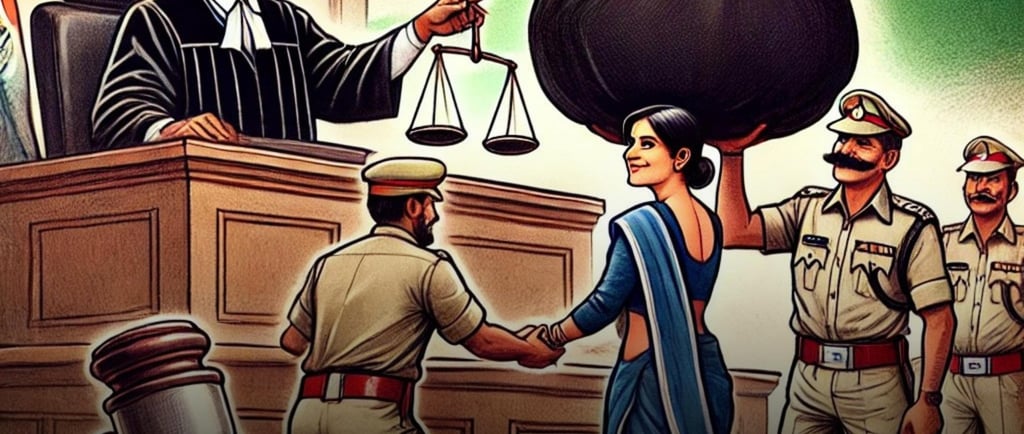"Delhi Court Grants Police Permission to Withdraw Sedition Case Against Shehla Rashid"
On February 27, Delhi's Patiala House Court granted approval to a plea submitted by the Delhi Police seeking the closure of a 2019 sedition case against former Jawaharlal Nehru University (JNU) student leader Shehla Rashid. Chief Metropolitan Magistrate Anuj Kumar Singh authorized the withdrawal of the case following the submission by the Delhi Police. The application highlighted that Delhi Lieutenant Governor VK Saxena, who had previously sanctioned Rashid's prosecution, has now rescinded the approval.
3/4/20251 min read


In August 2019, Shehla Rashid, a former vice president of the Jawaharlal Nehru University Students' Union (JNUSU), posted a series of tweets alleging misconduct by the Indian Army in Jammu and Kashmir. She claimed that army personnel were entering houses at night, picking up boys, ransacking homes, and deliberately spilling rations. In another tweet, she alleged that four men in Shopian were tortured in an army camp, with microphones placed near them so the entire area could hear their screams, creating an environment of fear.
In August 2023, Delhi Lieutenant Governor V.K. Saxena granted sanction to prosecute Rashid under the aforementioned IPC sections. However, on December 23, 2024, the Lieutenant Governor withdrew this sanction based on the recommendation of a screening committee. Following this development, the prosecution filed an application to withdraw the case.
On February 27, 2025, Chief Metropolitan Magistrate Anuj Kumar Singh of Delhi's Patiala House Court approved the prosecution's application to withdraw the case against Shehla Rashid. The court's decision was influenced by the withdrawal of the prosecution sanction by the Lieutenant Governor, rendering the continuation of the case untenable.
The sedition case against Shehla Rashid, initiated in 2019 over her tweets alleging misconduct by the Indian Army, was formally closed following the court's acceptance of the prosecution's withdrawal application. This decision underscores the importance of requisite sanctions in prosecuting cases under specific IPC sections.
